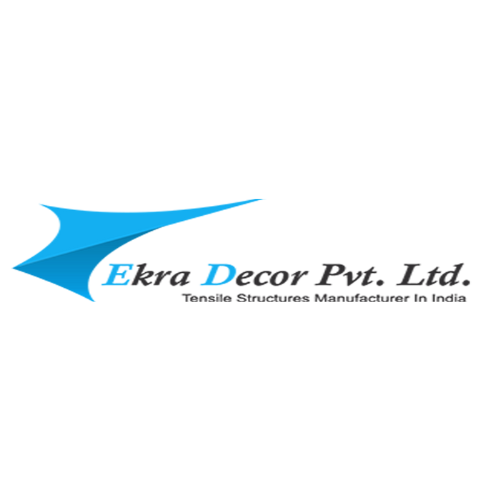Notifications

8 minutes, 4 seconds
-0 Views 0 Comments 0 Likes 0 Reviews

In today’s architectural landscape, innovation and aesthetics go hand in hand. Whether it’s a commercial complex, residential building, or public gathering space, one solution that is rapidly gaining popularity for roofing and open-air environments is the Tensile Structure.
Lightweight, cost-effective, and visually striking, tensile structures are transforming how we build modern spaces. But what exactly are tensile structures, and why are they such a smart choice for roofs and outdoor spaces?
Let’s dive into the many advantages of using tensile structures and why they are the go-to solution for architects, engineers, and property owners across the globe.
A tensile structure is a construction system that primarily uses tension instead of compression or bending. Typically, it consists of a fabric membrane stretched and supported by a network of steel cables, poles, or frames.
This design allows for creative shapes, expansive spaces without internal supports, and impressive durability—all while using minimal materials.
Tensile structures are commonly used in:
Stadium roofs
Car parking sheds
Walkway coverings
Gazebos and open lounges
Swimming pool enclosures
Event canopies
Thanks to their versatility and aesthetics, tensile structures in India are now being adopted in malls, airports, corporate campuses, schools, and residential communities alike.
Tensile structures are incredibly lightweight compared to conventional building materials. But don’t let that fool you—the membrane materials like PTFE-coated fiberglass or PVC-coated polyester offer excellent tensile strength, wind resistance, and longevity.
Less structural load on foundations
Suitable for long-span coverage
Resistant to environmental stressors
Tensile structures empower architects to break away from rigid shapes. They can be molded into unique, free-flowing forms that make any space look futuristic and elegant.
Curved rooftops
Cone or wave-like designs
Custom canopies for branding or ambiance
This design freedom is one of the main reasons many public and commercial projects opt for tensile roofing systems.
Compared to traditional roofing solutions, tensile structures take less time to manufacture and install. This translates to significant savings in labor and project timelines.
Prefabricated components
Fewer support columns
Reduced on-site disruption
One of the lesser-known but impactful benefits of tensile structures is their natural lighting capabilities. Many tensile membranes are translucent, allowing daylight to pass through while blocking harmful UV rays.
This feature helps in:
Reducing electricity consumption
Creating well-lit spaces without glare
Enhancing energy efficiency in the long run
Tensile structures are built to last. The materials used are waterproof, UV-resistant, and can withstand extreme temperatures, making them ideal for diverse climatic conditions in India.
Withstand heavy rains and strong winds
Rust-free support frames (usually made of galvanized steel or aluminum)
Long service life with minimal maintenance
Tensile structures have self-cleaning properties. The slope and surface tension help rainwater wash away dirt and dust, keeping the fabric clean with little effort.
Occasional cleaning is sufficient
No painting or polishing required
Ideal for high-traffic and remote locations
Tensile structures are not just for aesthetics—they’re practical, scalable, and versatile. Here are some popular applications:
Protect vehicles from sun and rain while adding modern design to commercial or residential premises.
Offer covered passages in schools, hospitals, malls, or corporate parks with appealing shade structures.
Perfect for resorts, private gardens, cafes, or lounges—providing a beautiful and functional shaded area.
Create an inviting ambiance around swimming pools, without compromising on ventilation or light.
Ideal for large-span coverage, tensile roofs are commonly seen in sports arenas and performance venues.
Choosing the right tensile structure manufacturer can make a significant difference in the performance and lifespan of your installation. Professional manufacturers like Ekra Decor ensure:
High-quality, certified materials
Custom design options
Skilled installation teams
Long-term support and warranty
If you’re looking for a reliable tensile structure in India, make sure to work with an experienced provider who understands both the engineering and aesthetic requirements.
Yes. High-quality tensile membranes are designed to withstand heavy rainfall, strong winds, and harsh sunlight.
With proper maintenance, tensile structures can last 15–30 years depending on the material used.
The initial cost may be comparable or even lower, and since installation is quicker and maintenance is minimal, tensile roofing is more cost-effective in the long run.
Absolutely. Shapes, colors, sizes, and printing can be customized to match your design goals and brand identity.
Basic maintenance involves occasional cleaning with mild soap and water. Periodic inspections are recommended for structural integrity.
If you’re planning to upgrade or build a roofed outdoor space, tensile structures offer a modern, durable, and visually impressive solution. From walkways and parking areas to canopies and lounges, they enhance both functionality and appearance.
In India, where weather extremes are common and space optimization is key, tensile structures deliver unmatched benefits—lightweight builds, flexible designs, quick setup, and long-term value.
Partner with Ekra Decor, a leading tensile structure manufacturer in India, and transform your vision into reality. Our expert team handles everything—from concept to installation—ensuring premium quality and seamless execution.
Visit Our Official Website : ekradecor.com
Contact No : +91 9810237952
Tensile Structure Tensile Structure Manufacturer Car Parking Shed Outdoor Canopy Design Tensile Roofing Tensile Structure in India Fabric Roofing System Architectural Tensile Structure Walkway Covering Stadium Roof Covering

